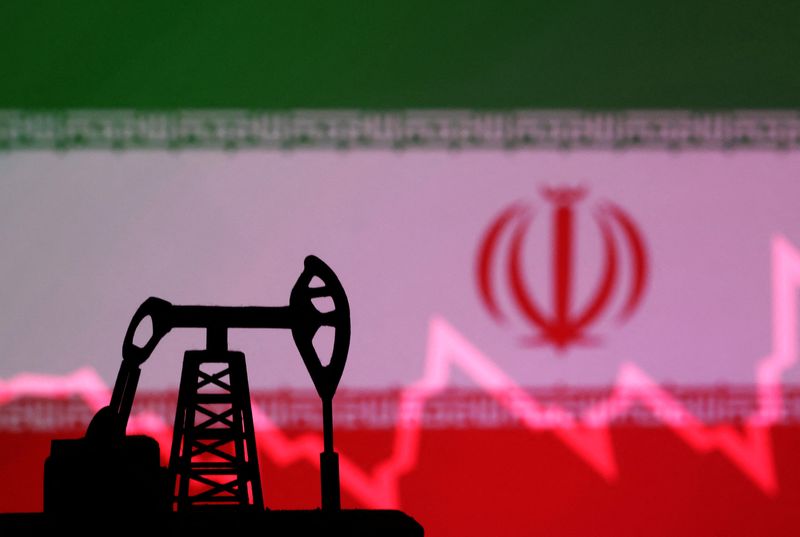Written by Alex Lawler, Robert Harvey, Ahmad Ghaddar
LONDON (Reuters) – Crude oil prices, which hit a six-month high on Friday, are expected to rise on Monday after Iran's attack on Israel over the weekend, but any further rise will depend on how Israel chooses to respond. Analysts said this could depend on the current situation.
Iran launched explosive drones and missiles toward Israel late Saturday in apparent retaliation for Israel's April 1 attack on its consulate in Syria. This is the first direct attack on Israeli territory, raising concerns of a broader regional conflict.
Concerns that Iran would respond to an attack on its Damascus embassy compound supported oil last week, with global benchmark Brent crude hitting $92.18 a barrel on Friday, its highest since October. .
Brent crude oil futures rose 71 cents to settle at $90.45 on the day, while U.S. West Texas Intermediate crude futures rose 64 cents to $85.66. Trading is closed on Sundays.
“It's natural to expect prices to rise once trading resumes,” said Tamas Varga of oil broker PVM. “That said, so far there has been no impact on production and Iran has said that 'this issue can be considered resolved.'
“However intense and painful the initial market reaction may be, the rally is likely to be short-lived unless supplies from the region are significantly disrupted.”
The White House said in a post on X that the leaders of the Group of Seven condemned the Iranian attack and reaffirmed the G7's commitment to Israel's security at a meeting on Sunday regarding the development.
G7 leaders discussed sanctions against Iran, a senior U.S. official said.
“When markets open during Asian trading hours, oil and potentially natural gas prices will likely spike, but oil prices are already experiencing significant geopolitical volatility in anticipation of an Iranian attack,” said Amrita Sen. “We had factored in the risks,” he said. -Founder of consulting firm Energy Aspects.
“If the crisis does not escalate enough to cause supply disruptions, there will be downside risks over time, but only after it becomes clear that Israel has opted for a cautious response,” he said.
Outlook for Iranian oil exports
UBS analyst Giovanni Staunovo said oil prices could rise sharply at the start of trading, and how long the rise lasts will depend on Israel's response. He added that whether the G7 decides to target Iranian crude oil exports will also be a factor.
Iran has sharply increased its oil exports, a major source of revenue, under President Joe Biden's administration. Exports declined significantly under the administration of Biden's predecessor, Donald Trump, who will face him in a rematch of the presidential election in November.
The Biden administration has imposed sanctions on Iran, saying it is not encouraging Iran to expand its exports.
A decline in Iranian exports could lead to further increases in oil prices and U.S. gasoline prices, a politically sensitive topic ahead of the election.
Another notable factor is the impact on shipping through the Strait of Hormuz, through which about one-fifth of the world's total oil consumption passes every day.
The commander of Iran's Revolutionary Guards Navy said on Tuesday that Tehran could close the strait if it deems it necessary, and earlier on Saturday, Iran's official IRNA news agency reported that a Guards helicopter crashed into the Portuguese-flagged MSC Aries. It was reported that the aircraft was boarded and entered Iranian territorial waters. .
“Oil prices already include a risk premium, and the extent to which they expand further depends almost exclusively on developments near Iran in the Strait of Hormuz,” said Saxo Bank's Ole Hansen.
Victor Katona, chief oil analyst at Kpler, said he thought an Iranian attack would be slightly bearish for crude oil in a comment that could buck the trend.
“Markets were predicting a path to World War III, but the risk of a larger regional conflagration will be lower if Iran says it believes its retaliation is over,” he said. .
(Reporting by Alex Lawler, Robert Harvey, Ahmad Ghadar and Dmitry Zhidannikov in London; Editing by Dmitry Zhidannikov, Jean Harvey and Susan Fenton)


